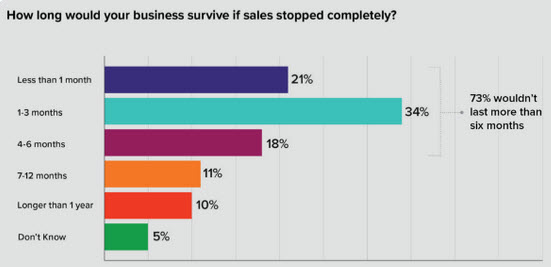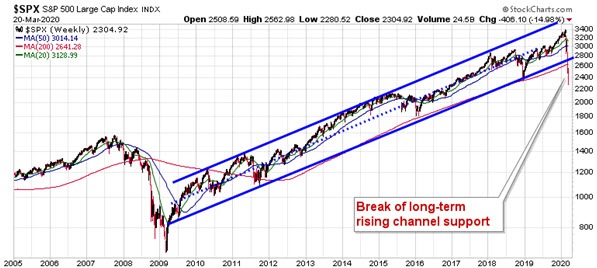Is your adviser panicking, yet?
Last week was the worst week for the market since October 2018. Bear markets and crisis have no playbook to use from prior events. This time IS different when it comes to bear markets.
We speak with financial advisers across the country every week. The two most recent phone calls were panicked over the losses being experienced with their “balanced portfolios.” The pain they are having is probably happening in your account unless you are one of our clients.
While Congress plays politics with economic legislation, it may be easy to assume the stock market will recover when the virus news becomes more hopeful. Do not make that assumption.
Your investment accounts need active re-alignment for a longer bear market. It is not just our opinion.
Goldman estimates U.S. earnings may drop 24% annualized in Q2. That is in line with the earnings chart the 2020 Q4 estimate declines by 26%. Citi Bank estimates a 30% drop and more to follow until the number infected finally turns down. Fed chief Bullard expects GDP to be halved and unemployment to reach 30% by Q2. None of this will support a return to even the prior market highs.ba
Business must be profitable for a company to survive. Current difficulties will come to an end, but no one can forecast when.

In spite of the “buy bargain priced stock” mantra from some of the President’s advisers (Mnuchin and Kudlow), talking heads in media and various newsletters and email publishers, the “bull market is dead.”

It is time to ask your financial adviser two questions.
“How much have I lost so far this year?”
“How much more loss will I have before you protect my account?”
If your adviser has you in bonds as your “safe haven,” you still are not very “safe.” The Fed is pumping record amounts of cash into the bond market which is currently struggling with significant liquidity issues.
The yield on the 10-year note ended March 20th, 2020, at 0.92%. The 2-year note ended at 0.37%, and the 30-year at 1.55%. When yields fall, bond prices rise. However, in recent weeks, bond trading has not reflected the normal “safe haven” relationship to stocks.
A caller on this week’s radio program asked us about changing advisers. His adviser is with a big national firm. Our advice was that changing to another similar broker-dealer firm will create unnecessary trades to remain in the same portfolio structure.
You need to have a portfolio structured around current market conditions rather than long-term averages. This is not a long-term average market. We have never had a virus as a catalyst for an economic shut-down.
The virus is not the only reason for the market’s decline. The falling corporate earnings is the reason for this season. Unfortunately, this season does not have an ending date, yet.

